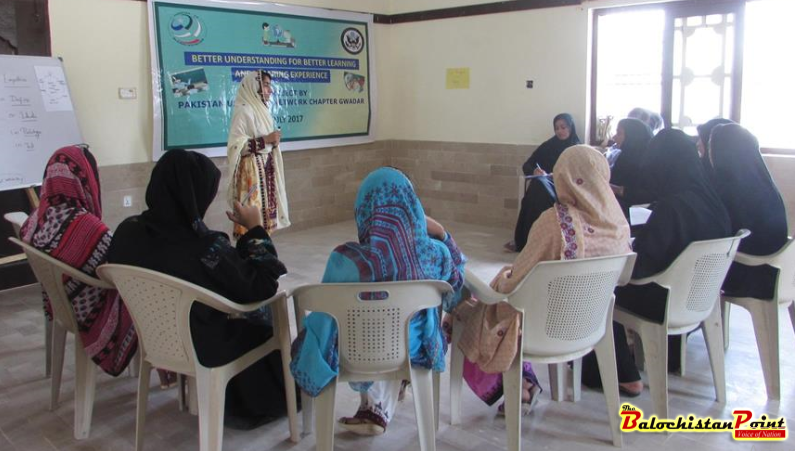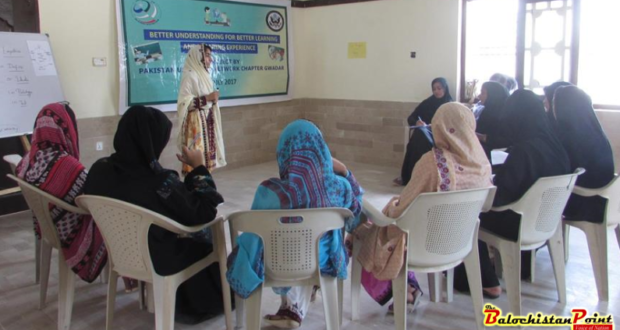Pakistan US Alumni Network Chapter Gwadar (PUAN-Gwadar) conducted two different events for students and teachers of Gwadar to explore better understanding for better learning and teaching experience.
The first event was conducted on 21st July in YES Alumni Library (Unique English Language Center), based on Sean Covey’s book “Seven Habits of Highly Effective Teenagers”. The seven habits for instance; being proactive, goal-setting, seeking to understand things sincerely, prioritizing important things, thinking win-win, synergy and renewal are designed to bring best out of the youth. Hence, the alumna created a manual with the help of the book and designed different activities for students.
The main idea behind teaching the seven habits of effective teens was to provide the girls an opportunity to brainstorm and pin-point their actual habits, their strengths and weaknesses and explore better ways to being better individuals, to achieve more for themselves and to contribute for their community as a whole. They also got an opportunity to share real-life situations and experiences.

Event in RCDC Gwadar to facilitate teachers and university level students to explore flaws in the existing education. (Photo: The Balochistan Point)
The second event was conducted on 22nd July in RCDC Gwadar to facilitate both teachers and university level students. The idea behind this workshop was to explore flaws in the existing education system, teaching and learning styles and then to suggest possible solutions and explore better learning and teaching skills.
The first session was based on a discussion. Participants were divided in four different groups, mainly; teachers, government representatives, students and parents. Collectively the groups raised the issues of having no proper trainings of teachers, lack of new techniques, having large strength of students, traditional ways of teaching, lack of equipment, ghost teachers, selection of teachers with political influence, unhealthy competition amongst students, leaving behind kids with dyslexia and dyscalculia. They suggested to have amendments in educational policies and strict implementation of laws related to education.
In the next session, participants were introduced to Google Docs and their use for virtual learning and knowledge building. Meanwhile the alumna created a folder including educational manuals, scholarship links and links to newspapers and magazines. The link was shared with the participants to make use of the material beyond the workshop and contribute themselves by uploading books and useful material.

Session in YES Alumni Library based on Seven Habits of Highly Effective Teenagers” (Photo: The Balochistan Point)
The participants were also introduced to Human Aided Design Thinking (HDT) and its five stages mainly; Empathize, Define, Ideate, Prototype and Test. HDT is mainly used to brainstorm better ways to design something using ideas from groups of people. Hence, HDT in this workshop was used to develop ideas for better teaching styles and techniques.
In the last session participants got to practice the 11 components of effective teaching for instance; selection of topic, finding out its need, setting goals, developing content, information about the level of students’ understanding, methodology, practice, setting objectives, application, evaluation and follow-up. By the end of the workshop, participants got an opportunity to present a lesson with the use of the 11 components.
The participants in both events were in encouraged to explore creative ways of learning and teaching and make use of the acquired knowledge in possible ways. Though they might have barriers, yet they seemed excited to challenge the traditional ways of exchanging ideas and learning.
Published in The Balochistan Point on July 23, 2017
 Balochistan Point Voice of Nation
Balochistan Point Voice of Nation




